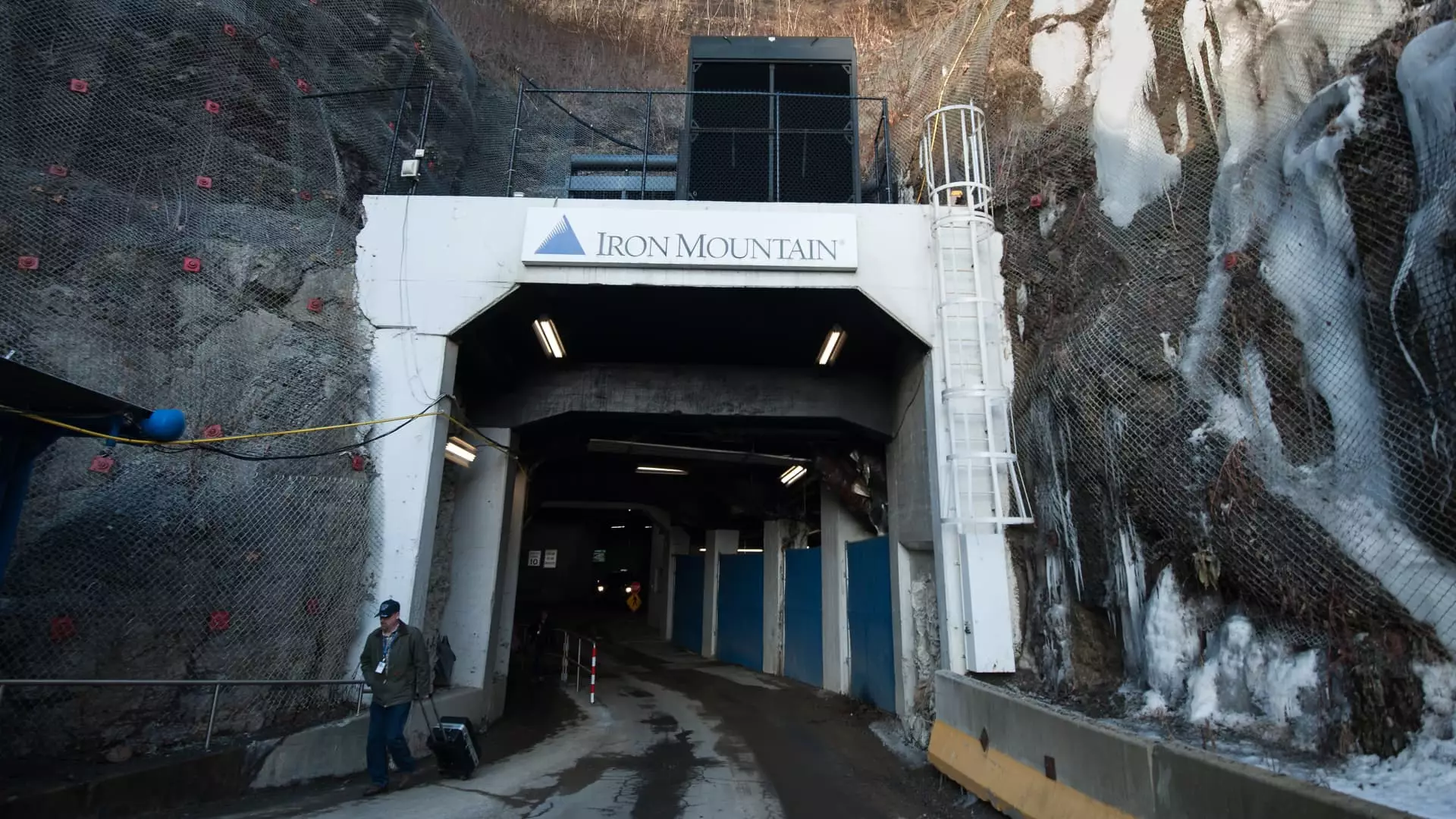In a striking revelation during a visit to the Oval Office, Elon Musk delivered a candid critique of the federal government’s inefficiencies, particularly focusing on the operations of Iron Mountain, a company that has been involved in securing and storing critical government documents. In his energetic fashion, Musk highlighted a limestone mine that serves as an unorthodox storage facility for federal retirement paperwork, characterizing it as an anachronism from the 1950s. This metaphor illustrates the disconnection between modern technological advancements and the outdated processes that still govern certain aspects of federal operations.
Musk’s observations ignited discussions about the broader implications of governmental protocol and operational obsolescence. His comments reflect not only a frustration with inefficiency but also a desire to initiate reforms that encourage innovation and operational improvement within government agencies. This scrutiny aligns with a larger narrative: in an era where technological advancements define corporate success, governmental procedures seem to lag behind.
Iron Mountain, the company entrenched in the spotlight following Musk’s commentary, serves as an important case study. Its Pennsylvania mine—housing millions of vital documents—is emblematic of a bygone era, and Musk’s suggestion that it operates at a pace influenced by elevator speed underscores the urgency for transformation. With Musk’s remarks emphasizing the absurdity of current practices, analysts and stakeholders alike couldn’t ignore the potential ramifications.
CEO Bill Meaney was prompt in responding to the upheaval caused by Musk’s statements. Highlighting Iron Mountain’s broader business strategy centered on digital transformation, Meaney painted a picture of a company in transition—one that is actively embracing the drive for increased efficiency within the federal government. While the mine may represent a small revenue stream, its limitations contrast sharply with the larger profits generated through digital services. In a climate that demands efficiency, Meaney’s optimism regarding these government initiatives reveals an adaptive corporate strategy intended to navigate the complexities of federal interactions.
The formation of the Department of Government Efficiency (DOGE) boasts a broader vision, further propelled by Musk’s participation. As he identified discrepancies in federal processes, Musk inadvertently positioned DOGE as a catalyst for transformative change. His comments illuminate a critical junction where public sector expansion meets private sector innovation. For Musk and others seeking improvement, this intersection represents both opportunity and obligation.
At the core, Musk’s assertions advocate for an overhaul in how government conducts business. His stark suggestion that professionals engaged in manual paperwork processes could redirect their talents towards more beneficial contributions to society reflects a desire to disrupt an established order in favor of modernization and operational enhancement.
The immediate market impact of Musk’s comments has sparked concern among Iron Mountain investors. With stock prices plummeting over fears of potential government contract alterations, a broader discussion emerged: Are these fears justified, or simply an overreaction? Analyst assessments reveal a bifurcated approach. While some argue that sudden declines fail to recognize Iron Mountain’s diversified revenue structure, others highlight the precarious nature of government contracts in an administration intent on cutting costs.
Wells Fargo analyst Eric Luebchow argued that the basis of Iron Mountain’s operations is not tethered to any single customer, thereby potentially minimizing financial risk even in the face of government withdrawal. Meanwhile, Barclays’ Brendan Lynch emphasized the legal requirements for record retention, suggesting a continued partnership would remain vital for the company’s existence, given the government’s needs.
As these discussions unfold, it becomes apparent that Iron Mountain’s alignment with government digitization initiatives could yet yield fruitful prospects amid an environment that emphasizes efficiency. The transition it undertakes to modernize operations intersects not only with governmental expectations but with a marketplace that increasingly demands streamlined solutions.
In an age characterized by innovation and digital transformation, the juxtaposition of Musk’s critique against Iron Mountain’s operational model presents a compelling dialogue about what lies ahead. As Musk’s rhetoric resonates through government corridors, the opportunity for significant change surfaces.
With the focus on operational efficiency growing more pronounced, Iron Mountain stands at a crossroads. The endeavor to evolve from outdated practices into a new era of efficiency is paramount. For corporate entities engaging with the federal government, the clarion call has been sounded: adapt or risk obsolescence. As stakeholders digest these critical insights, the narrative of efficiency-minded reform beckons all involved to embrace the future.

